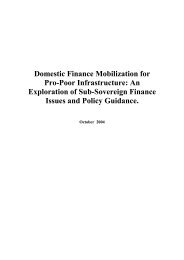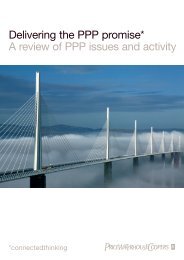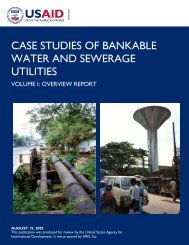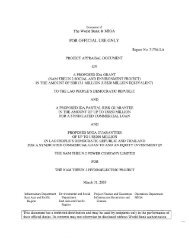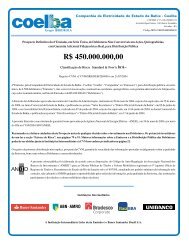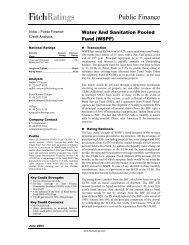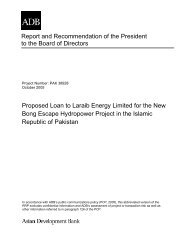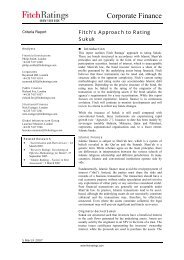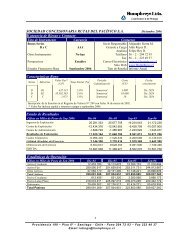EAP - The Pacific Infrastructure Challenge - World Bank (2006).pdf
EAP - The Pacific Infrastructure Challenge - World Bank (2006).pdf
EAP - The Pacific Infrastructure Challenge - World Bank (2006).pdf
You also want an ePaper? Increase the reach of your titles
YUMPU automatically turns print PDFs into web optimized ePapers that Google loves.
Kiribati 90<br />
Ports<br />
<strong>The</strong> Kiribati Port Authority was corporatized in 2000 under the Kiribati Ports Act. As a<br />
commercial entity, the Port Authority is responsible for operating its own budget. Any profit<br />
goes to acquisition and upkeep of assets in return for a government dividend. <strong>The</strong> Port<br />
Authority has not paid any dividends to date while it has been building up its assets.<br />
Corporatization has allowed the Port Authority to focus on “cutting costs and running more<br />
efficiently”. <strong>The</strong> Government retains control of all port assets which the Port Authority<br />
operates and maintains. Betio Port is currently running at a profit and is able to cover costs<br />
with existing charges. <strong>The</strong> Port Authority is currently reviewing options for contracting out<br />
selected services to cut expenses further.<br />
Betio Port is limited by the fact that ships cannot dock quayside due to the shallowness of<br />
the lagoon. Ships must anchor at sea and barges are used to collect containers. Although<br />
there is no waiting time for ships and clearing begins within an hour of berthing, this<br />
arrangement means that it takes an average of two days to process each vessel. A study<br />
recently reviewed the possibilities for upgrading the port to allow vessels to dock quayside.<br />
This proposal is currently being evaluated by the Kiribati Ministry of Transport. If it is<br />
approved, it would significantly improve the ability of the port to process vessels and would<br />
dispense with the additional expenses involved in running the tugs and barges. This would<br />
reduce freight costs in turn and would therefore help to attract more traffic to the port.<br />
However the economic analysis of the project suggests the benefit-cost ratio might be lower<br />
than one might wish.<br />
Shipping<br />
Chief Container Service provides international services between Australia (Sydney, Brisbane<br />
and Melbourne) and Tarawa. It is the sole operator on these routes. Previously, a competing<br />
operator, Sofrana Lines entered the market in competition to Chief Container Services,<br />
which responded by lowering its prices and improving service to the extent that Sofrana<br />
withdrew 91 .<br />
Kiribati’s domestic shipping services to outer islands are mainly provided by a government<br />
owned company Kiribati Shipping Services Limited (KSSL), while private sector operators<br />
provide services to the country’s inner islands. Private services also operate between Tarawa<br />
and Kiritimati. Shipping services to outer islands are infrequent and do not meet<br />
requirements.<br />
KSSL is operating at a loss 92 and vessel repairs and maintenance have not kept pace with<br />
degradation. No explicit subsidy is provided to the company, although rates and charges do<br />
not cover operating costs.<br />
90 Sources: Castalia Interview with Betio Port Master, September 2004<br />
91 <strong>Pacific</strong> Regional Transport Study, Volume 2 Country Action Plan: Kiribati” June 2004, from <strong>Pacific</strong> Islands<br />
Forum Secretariat website<br />
92 Ibid<br />
138



